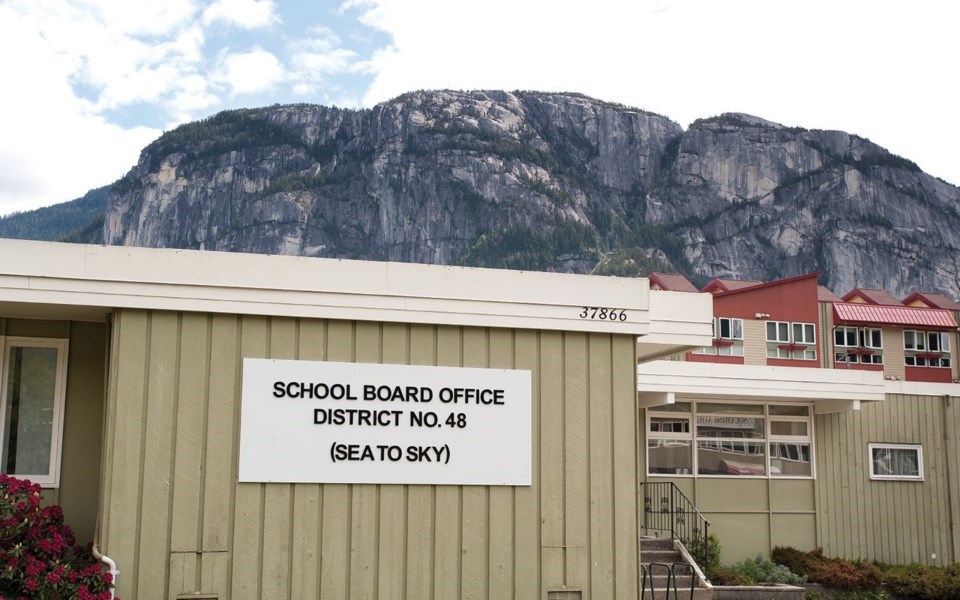Under proposed legislation revealed Oct. 25, First Nations will have more power and influence over the education of Indigenous students, with B.C.’s Minister of Education and Child Care, Rachna Singh, describing the changes as a crucial part of reconciliation .
The legislation was developed in collaboration with the First Nations Education Steering Committee (FNESC).
“These changes to the School Act are aimed at improving First Nation student learning outcomes through effective relationships and processes that respect the inherent authority and role of First Nation governments, parents and communities in the education of their children and youth,” said FNESC President Tyrone McNeil
“Indigenous students, particularly First Nation students living on reserve, face systemic barriers that result in inequitable outcomes in the K-12 system, and so the changes in this suite of amendments represent systemic, transformative and welcome changes,” he said in the release.
The changes apply across all 60 school districts in B.C., with three points of focus.
In the first, the establishment of Local Education Agreements (LEA), which had previously been an option for school boards to offer to First Nations, will now be a matter for the First Nations to decide on.
The legislation, though new, is well on the radar of the local school district, with School District 48 (SD48) discussing the changes at its most recent board meeting on Nov. 8.
SD48 Superintendent, Chris Nicholson, described the legislation as intended to ensure there were better supports and space for Indigenous voice in education, “so we have better direction and guidance in serving First Nations communities.”
Nicholson said SD48 is ahead of the curve on offering LEAs, noting the district already has an LEA in place with the Lil’wat Nation. “[The SD48] also engages with the Sk瘫wx瘫wu虂7mesh, N’Quatqua and Samhquam around whether they would like us to engage in an LEA with them, or continue to engage through the education agreement we currently have.”
Nicholson also said SD48 already has the second change proposed by the provincial legislation organized, in that all districts are required to establish an Indigenous Education Council (IEC)—something SD48 already has. The legislation will force some changes for SD48, however, with IECs allowing school district board members as trustees to be on the IEC council, but not vote.
SD48 board chair Rebecca Barley is also on SD48’s IEC, and is Indigenous herself, but in comments on Nov. 8 said she didn’t believe she needed to have a vote.
“My view is I’m in this position representing the constituents of Area C, and not the Indigenous communities,” she said, noting the other SD48 board member on the IEC was not Indigenous, and neither was the alternate, and making an exception for her would cause the board to have to change its bylaws and processes again down the road if she was not on the board.
The third item in the legislation is for First Nations to have the power to decide which school Indigenous students who live on reserve, self-governing or Treaty Lands will attend.
Again, Nicholson said SD48 is ahead on that file. “So, again, it’s to ensure their voice, and I believe it’s something we already honour,” he said.
The changes for Indigenous schooling are expected to be in place for the 2024-25 school year.
Holocaust education mandatory
In other legislation also announced at the end of October, Holocaust education will be a mandatory inclusion in the Grade 10 social studies curriculum from the 2025-26 school year onwards.
, B.C. Premier David Eby talked of the challenges faced by the Jewish community and the need for mandatory education.
“For our friends and neighbours in the Jewish community, this has been an incredibly frightening time. We have seen a rise in antisemitism in B.C. following the terrorist attacks in Israel, which evokes the history of persecution of Jews,” he said in the release.
“Combatting this kind of hate begins with learning from the darkest parts of our history, so the same horrors are never repeated. That’s why we are working with the Jewish community to make sure learning about the Holocaust becomes a requirement for all high school students.”
At the SD48 board meeting, Nicholson described the legislation as intended to broaden the scope of social studies.
“[The changes] are to ensure that when learning about discriminatory policies and injustices in Canada and around the world, that all students in B.C. must learn some key areas," he said.
“Right now there are options—teaching the Holocaust will no longer be an option, neither will Japanese internment, the destruction of Hogan’s Alley etc.”
Nicholson noted this legislation and associated changes will take time to implement.
“There’s going to be a whole year after this year of consultation with those groups affected, to ensure their voice is heard, and the proposed change will be for the 2025-26 school year,” he said.
Nicholson, who attended a call with B.C.’s education minister along with other school district superintendents to learn about the changes, said teachers will be provided with resources to learn and apply the new curriculum prior to its rollout.




